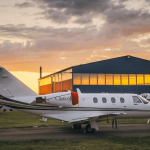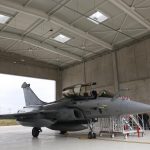The airline from Osijek started with agriculture and medicine and eventually arrived to dealing with ”special” clients.
As Darko Bicak/Poslovni Dnevnik writes on the 11th of July, 2018, Air Pannonia, an airline based in Osijek, is increasingly becoming a very serious player in both Croatia and on the wider regional air transport market, especially in the segment of VIP transport.
The company has upgraded its fleet with a new Cessna Citation 525A-CJ2 aircraft that will serve primarily for VIP transportation. As was clarified by Zrinka Vlašić Kujundžija from Air Pannonia, that particular airplane is one of the most comfortable in this class, and in addition to safety and reliability, it has a higher capacity better speed when it comes to travelling to more distant destinations, and will help the company better position itself on the European and world market.
“With the expansion of service and market penetration, Air Pannonia has become a desirable company for cooperation with many people in the business, showbiz, and sports world, and therefore created the need for buying a new aircraft. Consequently, the need for opening up new jobs is also logical, so with our already existing hangar, service, two aircraft, our aviation headquarters in Osijek, we’ve hired three new pilots and organised our sales centre in Osijek. So, in times when Slavonia is mentioned mostly in the context of emigration, our company is proof that Slavonia can succeed,” Vlašić Kujundžija pointed out.
Air Pannonia was founded back in 1993 under its former name of Air Tractor, and its primary business was related to agricultural aviation, later expanding to the VIP sector, and then with medical transportation aircraft.
Today, the company doesn’t carry the patients themselves, but work on organ transplants and the transport of medical teams for various purposes. Meanwhile, the Pannonia Pilot School Flight School, which operates in Croatia and in neighbouring Slovenia has also been established, holding the authority to service CAMO aircraft in the area of the former Yugoslavia, as well as in the EU and in Turkey.
Today, they have a fleet of six aircraft, and employ twelve people on average, although they point out that owing to the scope of the work, that number may vary.
Click here for the original article by Darko Bicak for Poslovni Dnevnik








